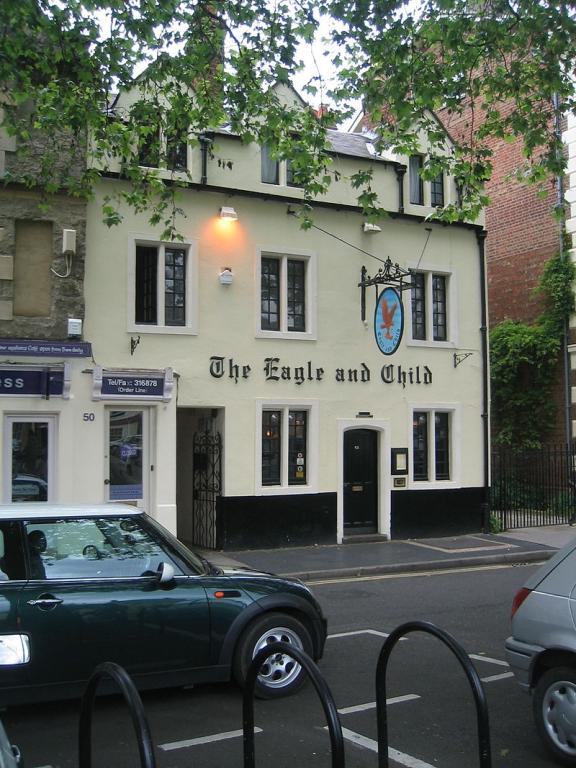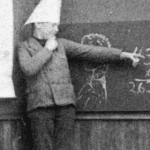
For specific reasons, I’ve lately been watching certain online debates — something that I haven’t previously been able to take the time for.
In the introduction to one of those debates, the host quoted a passage from C. S. Lewis that, to the best of my recollection, I’ve never encountered before. (Actually, I probably have, since I’ve read very nearly everything that’s been published of Lewis’s work, if not indeed everything, including his letters. But, if I’d read it before, it hadn’t struck me.)
I don’t know the source of the quotation from Lewis — if anybody out there does, I would appreciate a reference — but I suspect that it may have been spoken or written in connection with the Oxford Socratic Club.
At the invitation of the students who founded it, C. S. Lewis served as the president — the faculty sponsor — of the Oxford Socratic Club from its beginning in 1941-1942 until he left Oxford for Cambridge in 1954. The group focused on discussion and debate on issues connected with theism, particularly Christian theism, and skepticism, and its meetings featured a number of quite illustrious participants as either presenters or respondents, including Lewis himself, Antony Flew, A. J. Ayer, Iris Murdoch, Austin Farrer, Michael Polanyi, Gilbert Ryle, Basil Mitchell, R. M. Hare, J. L. Austin, Dorothy Sayers, G. E. M. Anscombe, C. E. M. Joad, E. L. Mascall, Gabriel Marcel, and Father Frederick Copleston.
Anyway, here’s the quotation from C. S. Lewis:
In any fairly large and talkative community such as a university there is always the danger that those who think alike should gravitate together where they will henceforth encounter opposition only in the emasculated form of rumour that the outsiders say thus and thus. The absent are easily refuted, complacent dogmatism thrives, and differences of opinion are embittered by the group hostility. Each group hears not the best, but the worst, that the other group can say.
I can’t help but wonder what C. S. Lewis would have made of today’s universities, which seem to me far more ideologically monolithic and insular than they were in the 1940s and 1950s. Or, even more so, what he would have made of modern social media, where many of us withdraw into fiercely isolated camps beyond which, we convince ourselves, all is either transparent idiocy or contemptibly manifest depravity. (I think of one particular place on the Web where, for instance, everything I do and say — along with some things that, in truth, I’ve neither done nor said — is relentlessly lamented and/or mocked and filed under one of four exhaustive categories: dishonest, vicious, moronic, or mad. And, although I’m certainly the principal single target there, I’m scarcely alone: Everybody who argues for or defends the Restoration is regarded, there, as either a liar, or a monster, or an idiot, or unhinged.)
Anyway, I’ll recommend two of the debates that I’ve recently watched and enjoyed.
The first, which lasted about an hour and forty-five minutes, was held at the University of Alabama in Birmingham, and featured the Oxford biologist and vocal atheist Dr. Richard Dawkins and the Oxford mathematician and Christian apologist Dr. John Lennox:
“Richard Dawkins vs John Lennox | The God Delusion Debate”
The second lasts, altogether, just slightly less than 2.5 hours. It took place almost precisely a decade ago, on 4 April 2009, on the campus of Biola University, in La Mirada, California, not very far from where my parents had their last home:
“Does God Exist?” William Lane Craig vs. Christopher Hitchens
In each case, I think that the theistic side won, although there are two places at which, from my point of view, Dr. Lennox fumbled slightly.
As a matter of personal interest:
1) I myself participated a number of years ago in a debate, in Denver, Colorado, with Dr. Craig. It took place before the Evangelical Philosophical Society, and we were on opposing sides. He is a formidable debater and an exceedingly brilliant fellow, even when he’s wrong. In his debate with Christopher Hitchens, though, he was right. And I think he won.
2) I met the late Christopher Hitchens only once, at Bally’s Resort Hotel and Casino in Las Vegas, several years ago. He had just debated Dinesh D’Souza on theism and Christianity, and I was about to take the same stage for a debate with Robert Spencer about Islam and violence. I agreed with Hitchens on some issues and disagreed with him on many others, but I admired his style and panache enormously. I trust that he was very pleasantly surprised on 15 December 2011.












